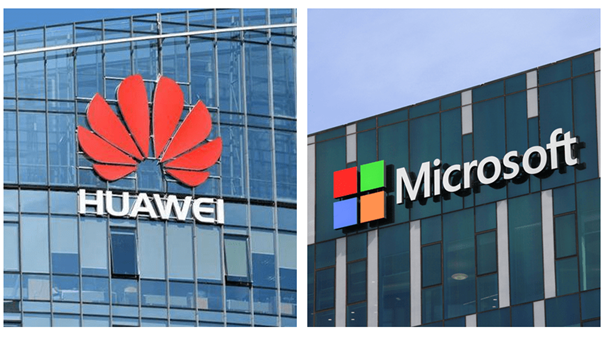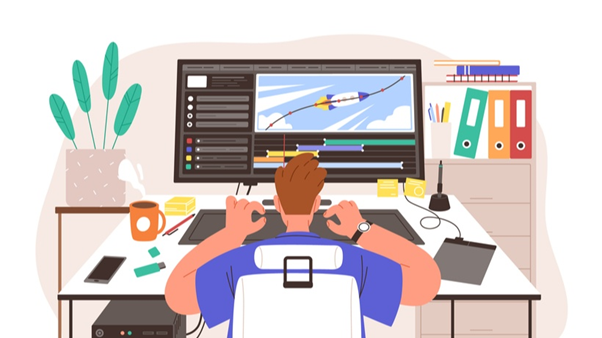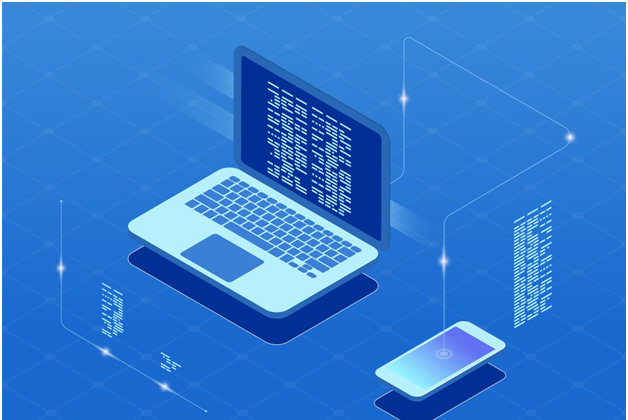
Huawei HarmonyOS
Huawei had to create its operating system due to U.S. sanctions that blocked them from licensing Windows or Android. The Huawei employee union holds the controlling interest in Hauwei. Yes, Huawei is owned by its employees. Can you imagine what a trend of employee ownership would do to hedge funds and overcompensated executives? It would cripple their income while increasing the income of rank and file employees.
So there is a cause and effect potential to why Huawei and not some other Chinese company was sanctioned. The employee ownership model undoubtedly scared the crap out of a lot of folks in positions of power.
The sanctions then forced Hauwei, still one of China's most influential companies, to create alternatives to Android and Windows, taking their new platform where iOS is headed. That direction is a device-independent OS that could take device interoperability to a new level.
This goal of a common OS is where Microsoft wanted to go with Windows 8 and Windows Mobile, and Apple is going with iOS. Because HarmonyOS, Huawei's platform, is new, they don't have the legacy problems with existing OSes favoring one platform over another; they can design from the ground up, giving them a faster path to execution.
An example of a solution was shared during the briefing that highlighted how powerful the result could become. A person competing in a bike race using an activity camera running HarmonyOS, a Huawei smartwatch and a Huawei smartphone, could live stream an integrated video showcasing what the rider is seeing, along with information like heart rate from the smartwatch, and their location on a map from the smartphone's GPS.
The same thing could be done with a car race, plane race, or just an aggressive drive on country roads someone wants to share on YouTube. This could be handy for sports training, military training, operations, or anything else where a blended video feed shows the activity and the metrics surrounding the person or machine doing that activity.
Huawei is moving seamlessly from a PC to a smartphone to make require less effort. Pulling IoT devices together into solutions becomes almost instantaneous, and applications only need to be written once to work on all platforms. It's a bit like Java done right.
This significant improvement in interoperability and standard OSes is our future. Huawei has been forced to try to make it our present. This platform makes Huawei a different version of Apple. Still, a hardware and software solution, but both open source and focused more on market growth (making customers happy) than mining them for money -- while taking better care of its employees.
Microsoft Viva
The pandemic has been a massive disruption, and at Ignite, Microsoft showcased many huge moves likely driven by the new needs that the pandemic identified.
Microsoft Viva is a comprehensive effort to address these four huge problems:
1. A lack of trusted and available information -- addressed by Viva Topics
2. The need to create and maintain remote relationships -- with Viva Connections
3. The need to increase productivity while maintaining a healthy work-life balance -- with Viva Insights
4. The need to develop new skills to deal with the changing environment -- with Viva Learning
All of these components are essential -- but what jumped out at me was Viva Connections. It appears to be what Facebook should have been -- a platform to create meaningful and lasting relationships.
One of the problems people are experiencing during the pandemic, especially if they were hired in the past year, is the inability to form relationships with their co-workers. Social media, which was supposed to address this need, has fallen woefully short. The related spaces are often filled with hostility, misbehaving users, and fake news -- all of which are counter-productive to creating and fostrering new relationships.
These services failed because of a revenue model that favors ad revenue over building relationships. Viva Connections has no such conflict of interest and can better focus on filling this huge relationship gap during the pandemic. Connecting through tools like Yammer and Teams Connections focuses tightly on helping employees build relationships that could last through their careers and create the kinds of mentoring opportunities that remote workers and minorities often miss.
Viva Connections are still in its infancy, but it is already a better platform than Facebook for those who genuinely want to build friendships.
Perhaps we need a version of Viva Connections in the public space so we can move to a platform that is focused more on what we need than what advertisers want.
Wrapping Up
This decade will be defined by a rate of change that may only be exceeded by the next decade. New companies like Huawei are cropping up to showcase new ways to do things, and new ways to create companies that are more aligned with their employees and customers than older firms could be.
We are also seeing new ways to address old problems like Microsoft Viva Connections, which promises to fill the gap in our personal and professional lives that social media platforms like Facebook failed to do.
We'll see an unprecedented amount of advancement over the next few years, and this is just a small taste of what is yet to come.









Our Services